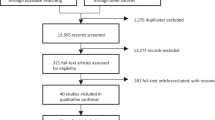Abstract
OBJECTIVE: To examine outcomes of primary care patients receiving low levels of antidepressant treatment.
DESIGN: Cohort study comparing patients receiving antidepressant treatment within and below the recommended dosing range.
SETTING: Primary care clinics of a staff-model health maintenance organization.
PATIENTS: Primary care patients initiating antidepressant treatment for depression.
MEASUREMENTS AND MAIN RESULTS: Of 88 patients beginning antidepressant treatment, 49 (56%) used “adequate” doses for 30 days or more. Likelihood of “adequate” pharmacotherapy was not related to patient age, gender, medical comorbidity, or baseline depression severity. All the patients showed substantial clinical improvement after four months. Compared with those using “adequate” pharmacotherapy, the patients receiving low-intensity treatment had lower likelihood of clinical response (64% vs 84%; chi-square=4.44; df=1; p=0.035). At four months, however, those receiving low-intensity and those receiving higher-intensity treatment did not differ significantly in either the score on the 20-item Symptom Checklist depression scale (18.91 and 15.72, respectively; F=1.45; df=1, 86; p=0.23) or the proportion with persistence of major depression (10% and 4%, respectively; chi-square=1.30; df=1; p=0.25). A replication sample of 157 patients (assessed only at baseline and four months) yielded similar results.
CONCLUSIONS: While the patients receiving recommended levels of pharmacotherapy showed somewhat higher improvement rates, many of the patients receiving “inadequate” treatment experienced good short-term outcomes. Efforts to increase the intensity of depression treatment in primary care should focus on the subgroup of patients who fail to respond to initial treatment.
Similar content being viewed by others
References
Wells K, Stewart A, Hays R, et al. The functioning and well-being of depressed patients: results from the Medical Outcomes Study. JAMA. 1989;262:914–9.
VonKorff M, Ormel J, Katon WJ, Lin EHB. Disability and depression among high utilizers of health care. Arch Gen Psychiatry. 1992;49:91–100.
Broadhead WE, Blazer DG. George LK, Tse CK. Depression, disability days and days lost from work in a prospective epidemiologic survey. JAMA. 1990;264:2524–8.
Greenberg P, Stiglin LE, Finkelstein SN, Berndt ER. The economic burden of depression in 1990. J Clin Psychiatry. 1993;54:405–8.
Simon G. Ormel J, VonKorff M, Barlow W. Health care costs associated with depressive and anxiety disorders in primary care. Am J Psychiatry. 1995;152:352–7.
Regier D, Narrow WE, Rae DS, Mandersheid RW, Locke BZ, Goodwin FK. The de facto US mental and addictive disorders service system: epidemiologic catchment area prospective 1-year prevalence rates of disorders and services. Arch Gen Psychiatry. 1993;50:85–94.
Beardsley RS, Gardocki GJ, Larson DB, Hidalgo J. Prescribing of psychotropic medication by primary care physicians and psychiatrists. Arch Gen Psychiatry. 1988;45:1117–9.
VonKorff M, Shapiro S, Burke JD, et al. Anxiety and depression in a primary care clinic: comparison of Diagnostic Interview Schedule, General Health Questionnaire, and practitioner assessments. Arch Gen Psychiatry. 1987;44:152–6.
Simon G, VonKorff M. Recognition, management, and outcomes of depression in primary care. Arch Fam Med. 1995A;4:99–105.
Depression Guideline Panel. Depression in Primary Care: Clinical Practice Guideline. Rockville, MD: US Department of Health and Human Services, Public Health Service, Agency for Health Care Policy and Research, 1993.
Johnson DAW. A study of the use of antidepressant medication in general practice. Br J Psychiatry. 1974;125:186–92.
Magruder-Habib K, Zung WWK, Feussner JR, Ailing WC, Saunders WB, Stevens HA. Management of general medical patients with symptoms of depression. Gen Hosp Psychiatry. 1989;11:201–6.
Haggerty JJ, Evans DL, McCartney CF, Raft D. Psychotropic prescribing patterns of nonpsychiatric residents in a general hospital in 1973 and 1982. Hosp Community Psychiatry. 1986;37:357–61.
Rost K, Williams C, Wherry J, Smith GR. The process and outcomes of care for major depression in rural family practice settings. J Rural Health. 1995;11:114–21.
Wells K, Katon W, Rogers B, Camp P. Use of minor tranquilizers and antidepressant medications by depressed outpatients: results from the Medical Outcomes Study. Am J Psychiatry. 1994;151:694–700.
Katon W, VonKorff M, Lin E, Bush T, Ormel J. Adequacy and duration of antidepressant treatment in primary care. Med Care. 1992;30:67–76.
Simon G, VonKorff M, Wagner EH, Barlow W. Patterns of antidepressant use in community practice. Gen Hosp Psychiatry. 1993;15:399–408.
Katon W. Lin EHB, VonKorff M. et al. Predictors of persistence of affective symptoms in primary care. J Affect Disord. 1994;31:81–90.
Elkin I, Shea T, Watkins JT, et al. National Institute of Mental Health Treatment of Depression Collaborative Research Program. Arch Gen Psychiatry. 1989;46:971–82.
Paykel ES, Hollyman JA, Freeling P, Sedgwick P. Predictors of therapeutic benefit from amitriptyline in mild depression: a general practice placebo-controlled trial. J Affect Disord. 1988;14:83–95.
Saunders K, Stergachis A, VonKorff M. Group Health Cooperative of Puget Sound. In: Strom B (ed) Pharmacoepidemiology. New York: John Wiley & Sons, 1994.
Katon W, VonKorff M. Lin E, et al. Collaborative management to achieve treatment guidelines: impact on depression in primary care. JAMA. 1995;273:1026–31.
Mayfield D, McLeod G, Hall P. The CAGE Questionnaire: validation of a new alcoholism screening instrument. Am J Psychiatry. 1974;131:1121–3.
Derogatis L. SCL-90R: Administration, Scoring, and Procedures Manual. Baltimore: Johns Hopkins University Clinical Psychometrics Unit, 1977.
Lin E, VonKorff M. Katon W, et al. The role of the primary care physician in patients’ adherence to antidepressant therapy. Med Care. 1995;33:67–74.
Simon G, VonKorff M, Revicki D. Telephone assessment of depression severity. J Psychiatr Res. 1993A:27:247–52.
American Psychiatric Association. Diagnostic and Statistical Manual of Mental Disorders. Third Edition, Revised. Washington, DC: American Psychiatric Association, 1987.
Rush A, Giles DE, Schlesser MA, Fulton CL, Weissenburger J, Burns C. The Inventory for Depressive Symptomatology: preliminary findings. Psychiatry Res. 1986;18.
VonKorff M, Wagner EH, Saunders K. A chronic disease score from automated pharmacy data. J Clin Epidemiol. 1992A:45:197–203.
Costa P, McCrae RR. The NEO Personality Inventory Manual. Odessa, FL: Psychological Assessment Resources, 1985.
Author information
Authors and Affiliations
Additional information
Supported by NIMH grants #MH41739 and #51338.
Rights and permissions
About this article
Cite this article
Simon, G.E., Lin, E.H.B., Katon, W. et al. Outcomes of “Inadequate” antidepressant treatment. J Gen Intern Med 10, 663–670 (1995). https://doi.org/10.1007/BF02602759
Issue Date:
DOI: https://doi.org/10.1007/BF02602759




